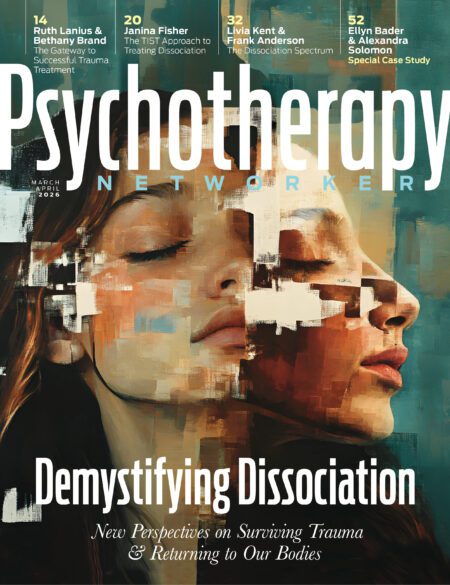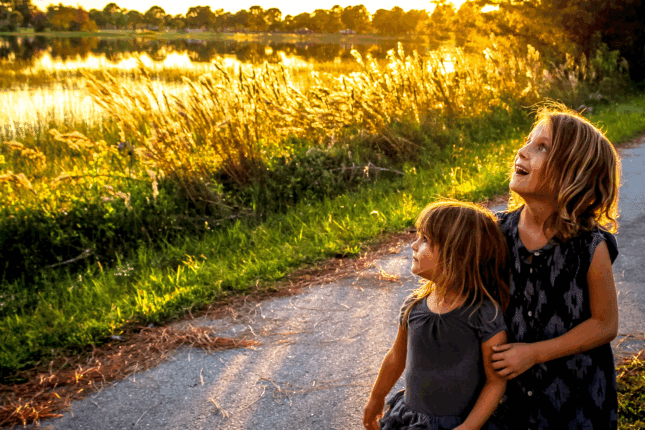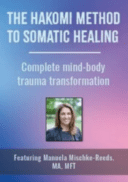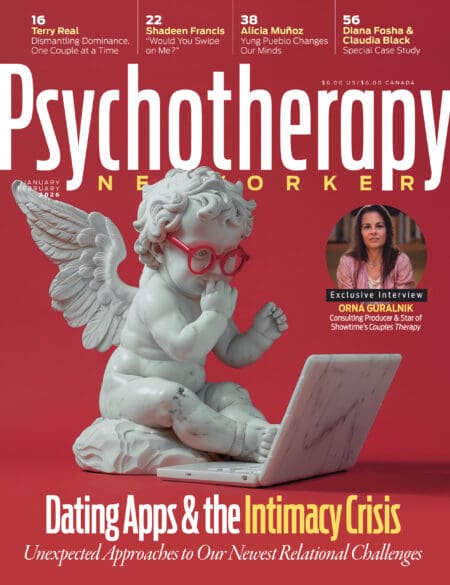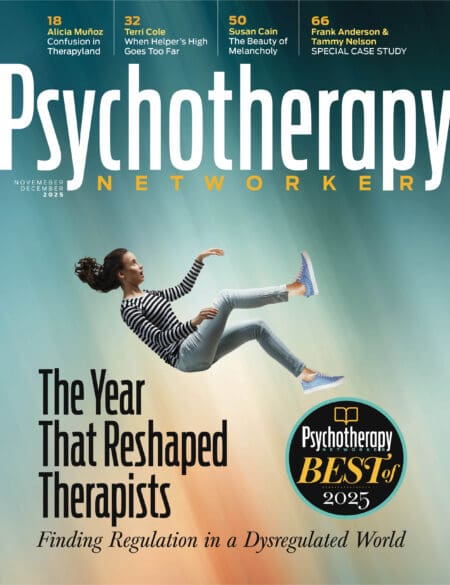Enjoy the audio preview version of this article—perfect for listening on the go.
The starting point for much of my work is the recognition that the body isn’t what we always thought the body was: a thing, a mechanical object, like an automobile that we drive or manipulate. A simple but powerful way to shift your experience of life is to take your attention and deliberately put it on your body.
At first, you may not get anything, but if you just stay there for about 30 seconds or a minute—or if you keep coming back there—pretty soon you develop what I like to call a “felt sense.” That’s a body sense of the whole situation: not just one feeling, not just that you’re angry or happy, but the whole Gestalt of what’s going on for you at that moment.
It’s comforting to be in touch with a felt sense. It’s like now you know in some immediate way that our experience of life is always an interaction of both the body and the environment. That doesn’t mean only interaction with another person. It’s how you’re sitting, what you’re inhaling, and the whole situation surrounding you. It’s the past; it’s what led up to this present moment. Most of us are still stuck in one spot or another in the past, and all of that’s in the body.
Focusing vs. Mindfulness
Mindfulness, at least as I see it being practiced by many people today, is like sitting at the head of the stairs and looking out at everything that comes up the stairs and saying “Oh, I see anger. Oh, I see impatience. Oh, I see this. Oh, I see that.” But I say, “Go downstairs. Don’t just sit there and be the passive observer. Go downstairs and see where everything is coming from.”
For their part, the mindfulness people say, “Make sure that you regularly go back upstairs so that you don’t get caught by every different emotion and every different feeling.” To which, I’d say, “Yes, but the focus needs to be downstairs, in the body.”
It’s also important not to consider the body as being somehow opposed to the conceptual, cognitive ability we have as human beings. To me, it’s a dialogue: the conceptual gives us an understanding in the body that’s important, and the felt experience of our body leads us further than we’re able to go just with what we can put into language or from our concepts about the world. So analyzing is important, but it needs to be in dialogue with the rest of our experience.
Wonder
The body has a natural tendency to say, “What’s next?” and to go forward. So when you’re working with someone in therapy who’s experienced something horrible, there’s always a part of the person that wants to move forward. It’s like when the picture is hanging crooked on the wall and something in your body tells you to get up and straighten it.
In this life, we regularly discover that there’s all this crap—the difficult experiences we try to avoid—but there’s also magnificence that we can sense. In animals, in trees, and in the rocks, there’s a magnificence that’s obviously there, and you can find it if you look out the window. But sometimes it seems far away over there, and it often comes mixed up together with the horror. That’s one of the biggest things to learn in life. The wonder of the whole thing is so much bigger than anyone can see. At this stage in my life, it’s more important to me to take it all in and not get distracted by trying to invent too many fancy phrases to describe it.
Eugene Gendlin
Eugene Gendlin is best known as a pioneer in the development of mind-body approaches to therapy. He’s the developer of Focusing, an experiential form of psychotherapy that encourages clients to get in touch with a “felt sense” of their bodies.
